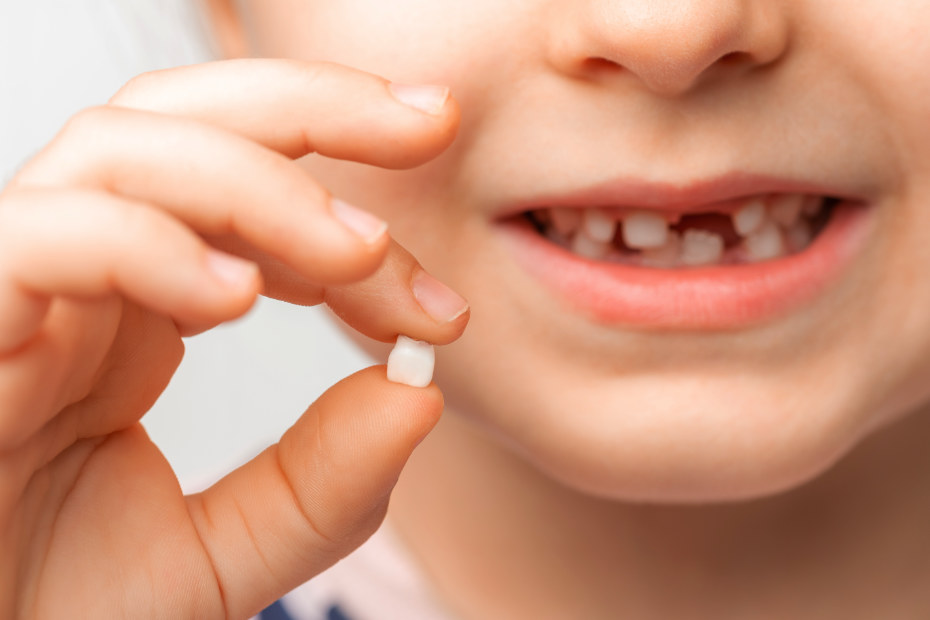The sight or feeling of your child’s first tooth coming out can be exciting, nerve-wracking, and even confusing. With it being a significant milestone of your child losing its baby teeth, and gaining adult ones, it can be daunting regarding the next steps. That’s why we have created this guide to what to do when your child’s teeth become loose and start to fall out and how to navigate this phase.
When do baby teeth start to fall out?
Baby teeth typically begin to emerge at 6–10 months of age, continuing to appear until the age of 2 or 3. The process of losing baby teeth usually commences at the age of 6 to 7 years old, but this may vary from child to child and could be delayed by up to a year.
What should you do when baby teeth become loose?
When a baby’s tooth becomes loose, you can either wait for it to come out on its own, or you or the child can wiggle the tooth with clean hands or with the child using its tongue. However, it is never advised to attach the tooth to a string or floss and pull.
What should I do when the tooth comes out?
It’s time to celebrate! A child losing their first tooth is an important milestone in their life and a sign of their growing up. Don’t forget to capture the moment with a few pictures of your little one smiling to remember the moment!
Introduce them to the Tooth Fairy tradition! This can not only allow them to celebrate the milestone, but it can also get them excited about the process of losing teeth and combat any nerves.
Ensure you are keeping the area clean to prevent discomfort or infection. If your child is experiencing discomfort or pain, you can offer relief by helping them rinse with warm, salty water or by giving them something cold, such as a smoothie.
Educate them on the process of losing teeth:
It’s important to emphasise the normality of losing baby teeth to your child and educate them on the process of losing teeth and what happens next.
Moreover, it’s also vital to reinforce the importance of good oral health. This includes:
- Reminding them to brush twice a day
- Introduce flossing to help remove food and clean hard-to-reach crevices around their teeth
- Limit sugary foods or beverages
- Maintain regular dental checkups
The journey of losing baby teeth and gaining permanent adult teeth can be an exciting yet nervous one for children and potentially an emotional one for adults; however, it is a milestone to remember! As a signifying moment of your child’s growth, it is also a completely natural one. By encouraging good oral hygiene, offering support, and celebrating these milestones, you can help to make this a positive and exciting phase for your child, and we hope to have answered any queries you may have. If you have any questions or want to register your little one for Owlsmoor, please feel free to contact us today.


